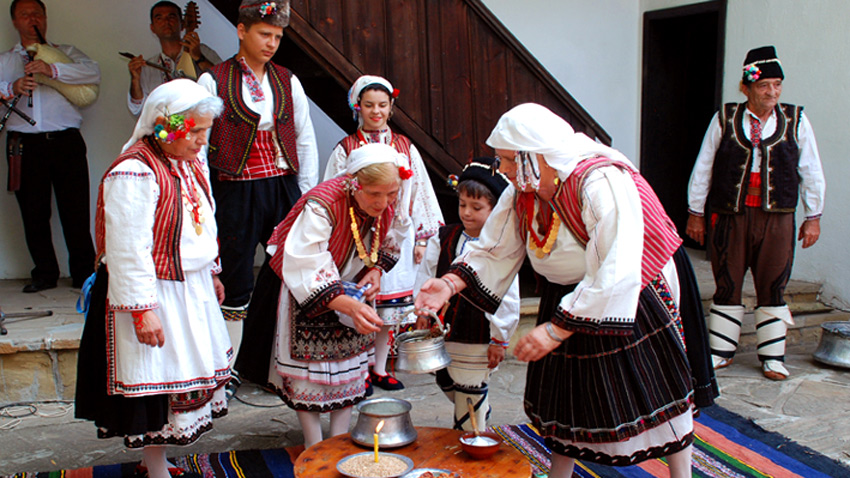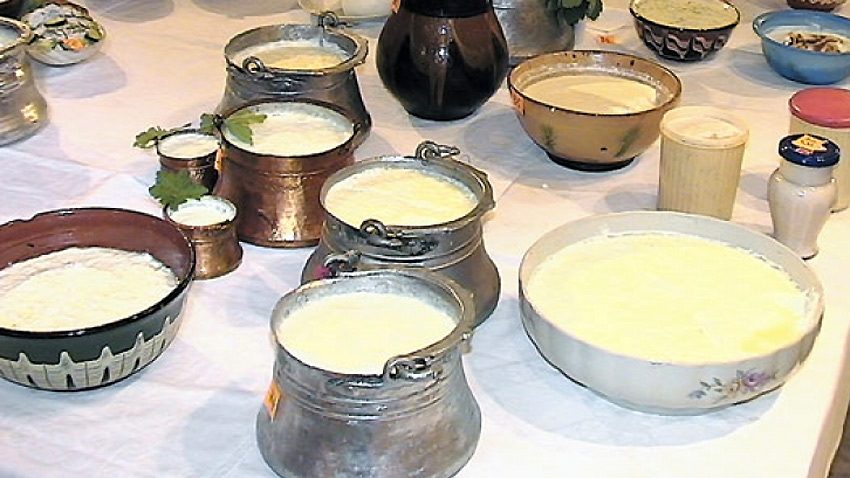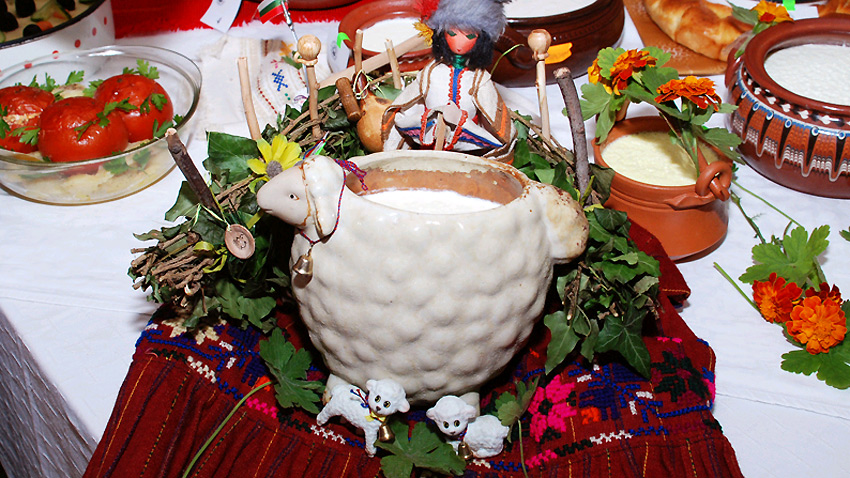Do you know which of Bulgaria’s ethnographic regions is most colourful? The answer is – Northern Bulgaria, where the Danube river plain unfolds its fertile lands reaching right up to the shores of the Black Sea. There are several villages amidst the wheat and maize fields stretching out as far as the eye can see, with Razgrad right in the middle. This is the “capital” of the Kapantsi – a small ethnographic group, people who like to say about themselves that their bloodline goes back to the oldest Bulgarians, that the language they speak is the most ancient, that their folklore is the most authentic, their yoghurt and their banitsa - tastiest.
Once upon a time this land, as flat as a pancake, was covered with impenetrable woodland where wild beasts would prowl and highwaymen lay ambush to traveling merchants. That is why people gave it the name Deliorman (in Turkish – Crazy Forest); later, after the liberation from Ottoman rule in 1878 it came to be known as Ludogorie (derived from the words “crazy” and “forest” in Bulgarian). Until the mid 20th century the forest here was so dense that the villages were entirely cut off from the outside world. Later, logging began on such a scale that the face of this part of the country changed forever. Where shady forests once reached up to the sky, farming land now stretches to the horizon. The people of the 15 towns and villages here proudly demonstrate their bizarre traditions. Starting with the kapan dialect no one else can understand and the vivid local folklore and ending with the unique rituals performed at weddings, on Todorovden (St. Todor’s day) and Lazarovden (St. Lazarus day).

We learn intriguing facts about local culture at the Museum of Ethnography in Razgrad where different ancient rituals are re-enacted. Visitors here can marvel at the authentic kapan costumes with their delicate embroidery in red and black, depicting plants, birds and people. The courtyard of the museum is used to display the old tanks in which rakia was distilled while old men dressed in traditional kapan outfits invite tourists to take a sip. The locals are definitely proud of their roots and traditions.

Razgrad municipality has put in place an ambitious tourist programme:
“Razgrad region is inhabited by the oldest ethnographic group in Bulgaria,” says Tanya Todorova from Razgrad municipality. “Some researchers say that Kapantsi are heirs to the men who came to these lands with Khan Asparouh, making them direct descendents of the founders of the Bulgarian state. It is because until recently they lived in a closed community that they have managed to keep their traditions alive.”
 If you are to go to the ethnographic complex on a feast day you are sure to get a taste of the typical banitsa called gyuzlemi which some bake in a skillet and others fry. One more local specialty you must try is the homemade yoghurt. “We make the best banitsa while our yoghurt has no equal,” says Tanya Todorova. Once, Kapantsi would choose their daughters in law by their ability to make yoghurt. Nowadays one whole festival is dedicated to yoghurt; this year it is taking place June 22-24.
If you are to go to the ethnographic complex on a feast day you are sure to get a taste of the typical banitsa called gyuzlemi which some bake in a skillet and others fry. One more local specialty you must try is the homemade yoghurt. “We make the best banitsa while our yoghurt has no equal,” says Tanya Todorova. Once, Kapantsi would choose their daughters in law by their ability to make yoghurt. Nowadays one whole festival is dedicated to yoghurt; this year it is taking place June 22-24.
“An ancient recipe, inherited from our ancestors is used to make the famed kapan yoghurt,” Tanya Todorva says. “It has a unique flavour and is so thick that if you turn the pot upside down it will still stay in place. The festival is now very popular and attracts many visitors. We have different re-enactments and also a bazaar of traditional Bulgarian handicrafts like weaving, pottery, jewellery, furs. Many of our local kapan folklore ensembles present the traditional local music.”
Razgrad municipality organizes a host of cultural events, with an emphasis on festival tourism, financed under different European operational programmes and bringing in a growing number of tourists. On Enyovden (Midsummer’s day, 24 June) there will be demonstrations of “magical kapan practices” in the Ethnographic museum courtyard. One event people eagerly look forward to, is the annual cultural heritage festival called “The white nights of Razgrad”, taking place in July. The festival features a string of events and culminates in spectacular re-enactments of Thracian and Roman rituals and legends amidst the ruins of the Roman settlement Abritus.

English version: Milena Daynova
Photos: turizamiotdih.comThe ski runs in the three major winter resorts of Bulgaria - Borovets, Bansko and Pamporovo, are well covered with snow before the official start of the season, BGNES reports. The 2024/2025 season will open in Borovets on December 15. A good base of..
In 2009, a state-owned company in Shanghai launched a yogurt on the market under the brand name "Musiliyan, as the village of Momchilovtsi is called in China. The еmergence of this product was accompanied by a large-scale advertising campaign, and..
The old button lift in the village of Govedartsi , Samokov Municipality, which takes tourists to the peak of Malyovitsa in the Rila Mountains, is to be modernised as a four-seater chairlift with a capacity of 1,520 people per hour . A proposal has been..
The ski runs in the three major winter resorts of Bulgaria - Borovets, Bansko and Pamporovo, are well covered with snow before the official start of the..

+359 2 9336 661
